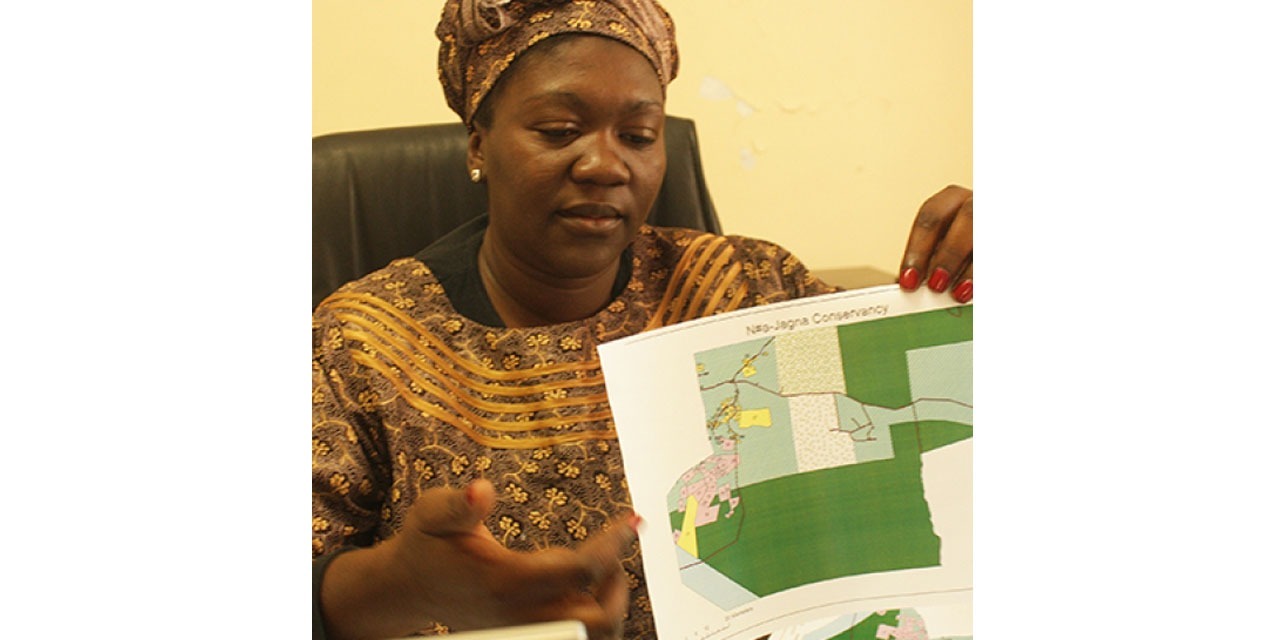Niël Terblanché
DRASTIC interventions are needed to mitigate the increasing number of people who fall into a situation of severe food insecurity.
The Executive Director of the Ministry of Agriculture, Water and Land Reform, Ndiyakupi Nghituwamata in an overview of the situation report on crop prospects, food security and the drought situation the lack of rain is at the heart of the situation where more people are facing starvation.
In an assessment of the situation report on crop prospects, food security, and the drought scenario, Ministry of Agriculture, Water, and Land Reform Executive Director, Ndiyakupi Nghituwamata, , stated that the lack of rain lies at the heart of the problem in which more people are suffering starvation.
“Most parts of the country only received productive rainfall in January. In addition to sporadic and insufficient rainfall patterns that have dominated the season, the country noted a severe and prolonged dry spell in December, February, March and April, which led to poor agricultural production and pasture establishment,” she said.
According to Nghituwamata, the aggregate cereal analysis showed that the country has produced 153 000 tonnes which is nine percent lower than the 168 200 tonnes of the previous season.
“All the crop-producing regions in the communal areas have recorded a significant decline in the crop harvest, contributing only about 20 percent to the national cereal production,” she said.
This is attributed to the poor crop growing conditions that were seen in the forms of delayed onset of the rainfall season, erratic rainfall patterns and prolonged dry spells. On the contrary, the commercial area alone witnessed an improvement in the harvest, contributing about 80 percent to the national cereal production.
“This improvement was primarily attributed to a notable increase in the planted area by numerous commercial producers,” she said.
According to Nghituwamata, the food security situation has significantly deteriorated as a result of highly unfavourable agricultural production conditions during the 2022/2023 cropping season.
“It has been observed that the majority of crop farmers have experienced crop failure, which has consequently severely impeded their ability to replenish their food reserves,” she added.
Nghituwamata said a considerable number of households in the key communal crop-producing regions have reported a depletion of their harvest from the previous season, and they are now relying mainly on the market and drought relief food in some regions, for sustenance. In addition, it is projected that the recent harvest will be exhausted between August and December 2023, leaving these households in a precarious state of food insecurity.
Grazing condition in most parts of the country has become significantly limited which is largely attributed to poor rainfall conditions and dry spells which have dominated the 2022/2023 rainfall season.
With regard to the water supply, she said the overall situation is a major concern in many areas of the county, due to poor rainfall received for the season.
A countrywide assessment of the dire situation calls for more intense interventions and assistance to people which entails that the government through the Office of the Prime Minister should continue with the provision of drought relief measures to households that are faced with food insecurity in the Kunene, parts of the Omusati, the Erongo, the Omaheke, the Karas and Hardap regions until the situation normalises.
Nghituwamata said the government should even consider the rollout of drought relief interventions across the remaining eight regions.
She said that the Ministry of Agriculture, Water and Land Reform must continue with and fast-tracking the process of construction rehabilitation and excavation of earth dams and boreholes in areas where communities are faced with water shortages.
“The ministry must also ensure sufficient and timely provision of agricultural inputs such as seeds and fertilizer and service such as ploughing and planting in preparation of the 2023/24 cropping season,” she said
Nghituwamata recommended that the Namibia Meteorological Service improve its capacity for accurate weather forecasting.
She also recommended that the number of elephants and buffaloes in both Kavango regions and the Zambezi Region must be brought under control by the Ministry of Environment, Forestry and Tourism.
“Regional councils must establish regional emergency disaster funds to strengthen the availability of resources,” she recommended and added that community leaders must continue to identify the most food insecure households for the provision of government assistance.




